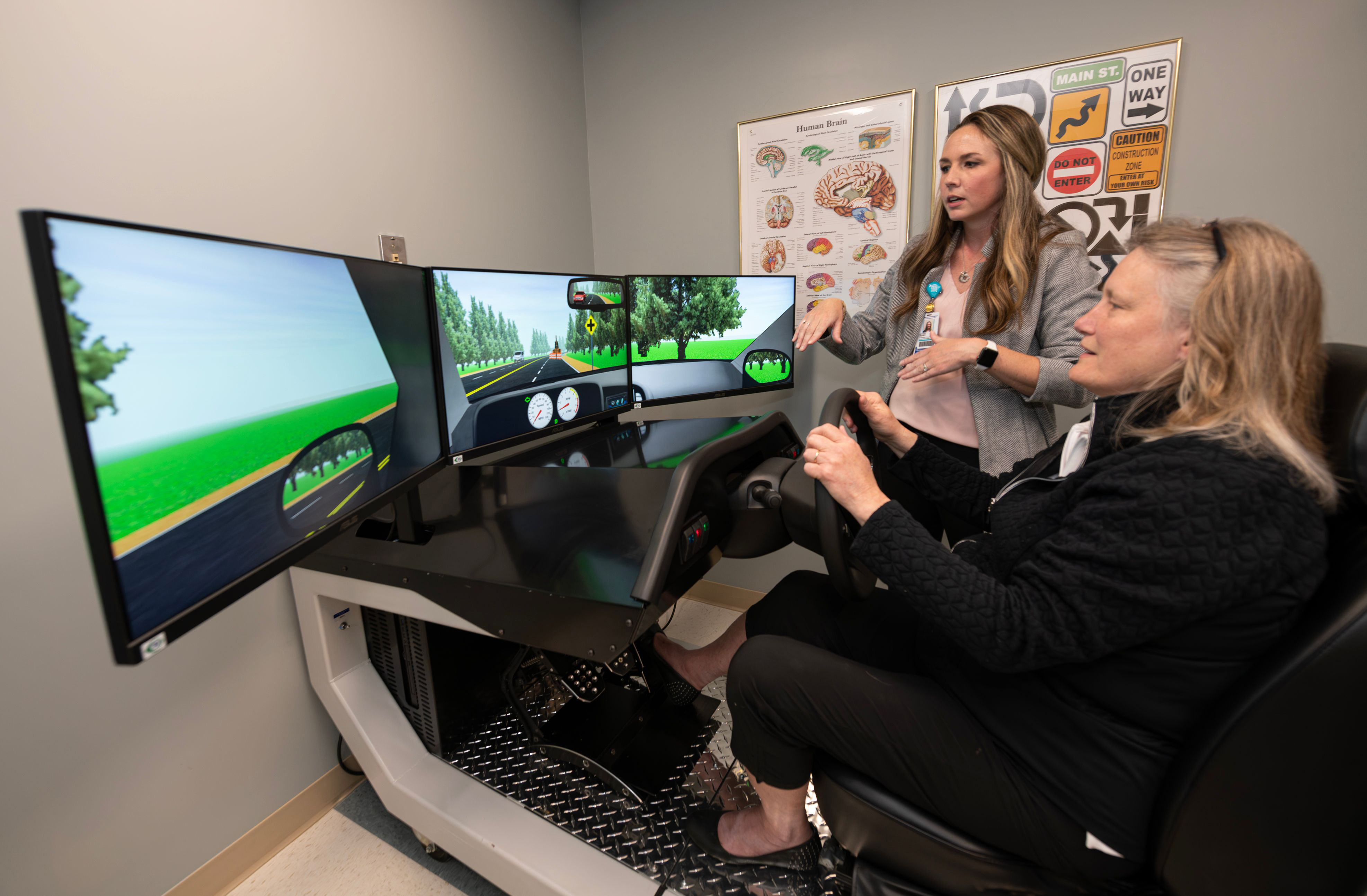Wentworth-Douglass Hospital, Dover, has debuted a patient driving simulator, providing patients a first-of-its-kind opportunity to test whether they are physically able to get back behind the wheel.
The STISIM Drive simulator will give patients who have experienced a physical or neurological injury the ability to test and re-learn driving skills in an immersive simulated environment. The simulator detects a person’s driving capability using virtual reality and more than 100 different real-world driving scenarios.
The new simulator is just the second of its kind in New England and the only driving simulator in the region north of Rhode Island. The system will be added to the hospital’s suite of rehabilitation services, allowing occupational therapists to safely assess and re-train patients of all ages, said Kendra Langus, senior director of rehab services and integrative therapies.
“Bringing this technology to the Seacoast and the state is an absolute game changer for so many of our patients,” she said. “After an accident, or due to a physical disability, many patients and their loved ones question whether they can still drive. Prior to today, there was no similar program available in New Hampshire for patients who needed to determine whether they could still drive. This technology will give many of them the answers they need, while making our roads safer for all of us.”

The STISIM Drive simulator will give patients who have experienced a physical or neurological injury the ability to test and re-learn driving skills in an immersive, simulated environment. (Courtesy photo)
She said that, in the past, the only way for patients to determine readiness to continue driving was an often impractical road test that could place both the patient and the public at risk. The simulator eliminates those risks, while providing real-time data that detects impairments such as attention deficits, visual field losses and delayed reaction times.
The simulator, which will be used to evaluate as many as six patients per day, will assist those battling with a wide variety of physical and mental challenges including concussions, multiple sclerosis, cognitive decline and those recovering from surgery.
Driver data will be stored in the patient’s individual electronic medical record, informing providers as they develop the patient’s rehabilitation plan.